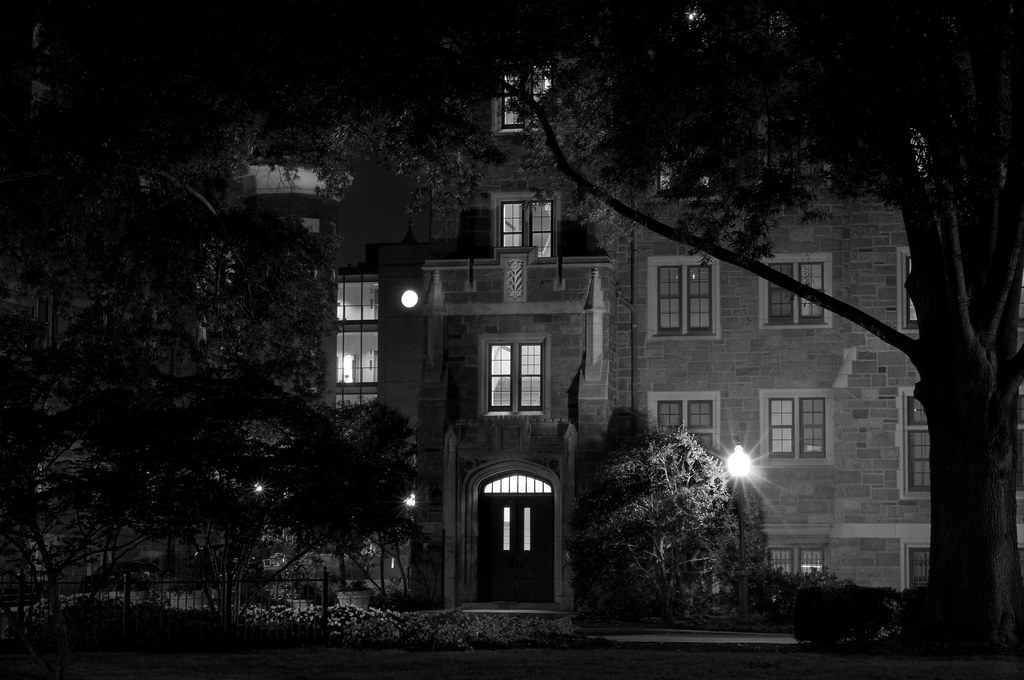Bernard Riviere-Plat is flipping crêpes on Lauren Bain’s Instagram account. Behind him is Rebecca Clement, Lauren Bain’s other flatmate and a Law student. It’s Saturday night, all three are in Bernard’s kitchen, and he’s wearing dark shorts, a puckish smile and aviator frames which make him look like Michael Caine, if only Michael Caine were a 85-year old former Catholic priest sharing crêpes and his bookish Parisian apartment on top of Gare Montparnasse with students from all over the world.
Bain, a 22-year old journalism student from the United States, is one of the young people Rivere-Plat has been housing for 25 years. This home-sharing arrangement, in which older people let out rooms to students, is on the rise in Paris. And it leaves both seniors and youngsters richer and less lonely.
As rents in Paris have been increasing, the popularity of home shares picked up dramatically. In 2005 Le Pari Solidaire, a specialized housing association, only formed five pairs of seniors and students in the Paris area. A year later that number jumped to 127. The government soon took notice, and in 2008 a special legal framework was designed for these arrangements. Home sharing has been growing ever since. Last year Le Pari Solidaire enabled 259 binômes, albeit less than its peak 350 in 2015. Still, students’ testimonies and an abundance of home shares listed online indicate this phenomenon is becoming more and more common in Paris.
Senior Parisians often find themselves having extra time and extra space to fill in their lives. Life expectancy in France has increased by six years from 1990 to 2016 and more than one in five Parisians is aged 60 and above. Of these 40% lived alone in 2013, many in Paris’s most coveted areas.
Students, on the other hand, have a hard time finding a place to call home in Paris. Around 700,000 people study in Paris every year, yet Crous, a French higher education public agency, together with Cité Universitaire, a student residential park, offer around 15,000 places. The rest often have to find more expensive private student housing or deal with private landlords.
Renting privately in Paris is especially challenging for international students who must provide a French guarantor to vouch for them. “I can find you 100 family members who’ll sign a paper for me, I’m Italian! But that doesn’t matter”, said Tiziano Gennaro, a 23-year old studying a master’s in International Development in Paris. Even though his parents’s income makes them suitable to be his guarantors, he was unable to rent his own place in Paris.
Home sharing is where these issues meet and often where they are solved. When his wife left for the United States 25 years ago, Rivere-Plat decided to fill the empty rooms in his Montparnasse apartment with students from all over the world.
“They are here”, said Rivere-Plat when asked what he enjoys most about home sharing, “and all my life I tried to surround myself with young people, they’re good for my education”. After starting out as a Catholic priest in homeless youth communities after the Second World War, Rivere-Plat and his wife organized internships for US students in French NGOs and town halls to discover “the real France”.
“I never really had a grandpa before”, Bain said. For €620 a month, she gets a home in central Paris, avoids a complicated lettings process and practices her French over crêpes and late night talks with Rivere-Plat and Clement. They call themselves “the mouchettes, after our street’s name”.
Seniors open their houses to youngsters to cure their loneliness, earn more money and keep living in their homes instead of moving to nursing homes, according to Catherine Garnier, the project manager of Ensemble2Générations, a specialised home sharing association. For youngsters, the loneliness aspect is just as important as saving on rent. “They have someone to give them advice and share their day with”, she said.
These apartment stories often start online, like most stories do today. Kaveri Modayil, a 23-year old student from India studying a master’s in International Security in Paris, lives with a 83-year old French teacher she described as “super energetic and outgoing”. She found her Parisian home through her university’s online housing portal. In Bain’s case, she replied to Riviere-Plat’s listing on a Facebook group for international students in Paris. “Bernard then drew my name out of a bowl”, Bain said.
There are also more formal ways to go about home sharing. One evening in Paris, in the grand marriage room of the sixth arrondissement’s town hall filled with around 50 people, the mic went to a slender woman with white hair, white skin and a dark pink dress. “For many years I’ve been trying to rent out a room, but found no tenant”, she said. Yet home sharing is different from usual rental contracts, a housing association representative told her.
They were participating in a round table talk on home sharing arrangements organised by the sixth arrondissement’s town hall, reuniting representatives of professional home sharing associations with seniors and young people. The sixth’s marriage room paired up many lives, so why not theirs.
During a 2003 heatwave in France, many seniors died of dehydration. They had had no one to care for them and no one to call to help. Le Pari Solidaire, the first home sharing agency in Paris, was launched shortly after those incidents, Maxime Dulac, the agency’s representative, said at the round table. More such projects soon followed, such as Toit+Moi and Ensemble2Générations, both represented at the round table discussion. Ensemble2Générations claims over 400 pairings in Île-de-France and over 5,000 in France overall.
Garnier believes the main role of agencies is to provide confidence. “Home sharing arrangements were formalized by the government in 2008, and our association reassures seniors they are within legal framework”, she said.
Agencies also screen both seniors and young people, who are required to write a motivation letter and pass an interview. After matchmaking, associations keep in touch with the binômes throughout the year. They also make sure the student will not face unpleasant surprises at the senior’s apartment.
This was the case of Gennaro. He was attracted by a no-guarantor, 35-square-meter room in an 85-year old lady’s apartment next to the Louvre, from which he was then desperate to move out. Upon arrival he realized the kitchen was “full of cockroaches, live ones, dead ones, whichever. The bathroom too”, said Gennaro. He described his landlady as a kind yet dirty chain smoker. Gennaro was afraid to hurt her feelings when moving out, so he considered invoking a “family emergency”.
But for most students and seniors home sharing remains a revelation that one’s perfect living companion might be a few generations away. Back in Montparnasse, Rivere-Plat reflected upon what he likes sharing the most with his student flatmates. “Life”, he smiled. “Life is eating crêpes, life is working, life is homework. We need a bit of everything”.



